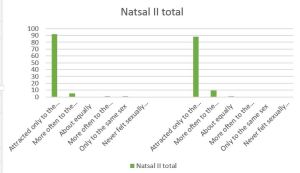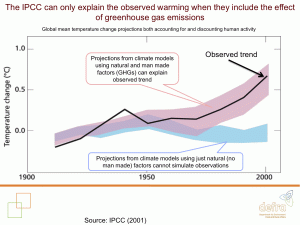Sir, Scotland is justifiably proud of its universities, its medical schools, and its profile in health-related and biomedical research. In 2013-14 the respected QS World Ranking system placed 18 UK universities in its top 100, three of them in Scotland. In life sciences and medicine, three Scottish universities were ranked in the top 100 along with 12 other UK universities. Scottish medical schools also do consistently well in UK comparisons and have particular research strengths in areas such as cancer, heart disease, hospital-based clinical medicine, inflammatory disease, mental health and health services research. Such success in an internationally competitive research environment reflects Scotland’s long-standing commitment to quality higher education and the determination of its universities to train, recruit and retain the very best doctors and biomedical scientists.
In the run-up to September’s referendum there has been much debate about whether an independent Scotland could maintain the research income from UK sources such as the Research Councils and health-related charities and upon which so much of its success depends. Thefollowing four examples illustrate just how well Scotland does through membership of the UK research funding system.
Firstly, Scottish institutions have done extremely well when competing for UK Research Council grants; for example in 2012-13 they won £257M (13.1%) of the funding available – a remarkable achievement for a country with just 8.4% of the UK population. The £83M raised by the University of Edinburgh accounted for one-third of its total research income in 2011-12 and was more than the funding provided by the Scottish Funding Council (SFC). Similarly, in Dundee University only £21M of the £121M research income of the Colleges of Life Sciences and Medicine in 2012-13 came from SFC, the remainder coming mainly from UK Research Councils, medical charities based in England and the EU.
Secondly, the most recent UK Clinical Research Collaboration Health Research Analysis (2012) showed that in 2009-10 Scotland won £180M (11.5%) of the funds made available by the 12 largest public and charitable funders of medical research in the UK. Sources funding Scottish institutions included the Medical Research Council (£66M), the Wellcome Trust (£46M), Cancer Research-UK (£28M), the British Heart Foundation (£4.8M) and the Arthritis Research Council (£2.6M). By comparison, Scotland’s Chief Scientist Office provided £17.6M.
Thirdly, a potent demonstration of Scotland’s ability to fund biomedical research from non-Scottish sources is provided by the Scottish Senior Clinical Fellowship scheme. This scheme is core-funded by SFC and provides salaries for outstanding young clinical academics on the verge of becoming Principal Investigators. The 18 individuals appointed over the past 5 years have to date secured no less than £68.7M inexternal grant income, only £3.6M of which was from ‘Scotland-only’ sources such as the Chief Scientist Office.
Fourthly, major contributions from UK charities (such as the Wellcome Trust, Wolfson Foundation, CR-UK and British Heart Foundation), UK Research Councils, the UK Research Partnership Investment Fund and other UK sources have allowed major new building projects to enhance Scotland’s five medical schools and provide state of the art researchfacilities. These facilities include the new Beatson Institute and the academic complex on the new Southern General Hospital site in Glasgow, the Queens Medical Research Institute in Edinburgh, and the Centre for Translational and Interdisciplinary Research in Dundee.
If Scotland were to withdraw from the UK and create its own Scottish Research Council our research community would be denied its present ability to win proportionately more grant funding than the country contributes to a common research pool. However, rather than ‘going it alone’ the Scottish Government aspires to join with the remaining UK in creating a common research funding area. Even if this could be negotiated it is highly unlikely that the remaining UK would tolerate a situation in which an independent ‘competitor’ country won more money than it contributed to drive its research, develop capital projects and infrastructure, and train its research workforce. We regard creation of a post-independence common research area as an undertaking fraught with difficulty and one that is unlikely to come to fruition.
We imagine that UK fund-raising charities might accept a period of turbulence and financial outlay to develop systemsthat allowed them to continue to fundraise in an independent Scotland and support research there. The situation is radically different for endowed charities such as the Wellcome Trust and the Health Foundation that do not rely on public fundraising. Both of them fund some research in overseas countries but the Wellcome Trust places emphasis on building research capacity in low-and middle-income countries. While the Wellcome Trust does fund some research in the Irish Republic, it insists upon equal partnership with the national Science Foundation and Health Research Board of Ireland. An independent Scotland could possibly negotiate a similar arrangement but it would mean significant Government outlay on research that would otherwise have been funded by the Trust alone if Scotland had remained in the UK.
In the debate about independence it is ironic that Scottish Government is able to speak freely while the heads of our leading research universities (and the umbrella organisation Universities Scotland) and our premier learned society, the Royal Society of Edinburgh, have to date felt obliged to remain neutral because they receive Scottish Government funding. Their silence should not be interpreted as evidence of tacit support for independence on the part of the life sciences research community. We write as individuals with no party-political agenda but with extensive experience of heading world-leading research groups, units and institutes in Scotland, and participating at thehighest level in the work of grant-giving government agencies, UK Research Councils and health-related charities. Growing out of our profound commitment to Scotland are grave concerns that the country does not sleepwalk into a situation that jeopardises its present success in the highly competitive arena of biomedical research. Life sciences research provides thousands of high technology jobs; it is now and can undoubtedly remain a cornerstone of the Scottish economy. We contend that Scotland’s research interests will be much better served by remaining within the common research area called the United Kingdom.
Professor Dario Alessi PhD, FMedSci, FRSE, FRS
Professor Jean Beggs CBE, PhD, FRSE, FRS
Professor Colin Bird CBE, PhD, FRCPath, FMedSci, FRSE
Professor Sir Adrian Bird CBE, PhD, FMedSci, FRSE, FRS
Sir David Carter MD, FRCSE, FMedSci, FRSE
Professor John Coggins OBE, PhD, FRSE
Professor Richard Cogdell PhD, FRSE, FRS
Professor Sir Philip Cohen PhD, FMedSci, FRSE, FRS
Professor James Garden CBE, MD, FRCSE, FRSE
Professor Neva Haites OBE, PhD, FMedSci, FRSE
Professor Nicholas Hastie CBE, PhD, FRSE, FRS
Professor Wilson Sibbett CBE, PhD, FRSE, FRS
Professor Karen Vousden CBE, PhD, FMedSci, FRSE, FRS
Professor Roland Wolf OBE, PhD, FMedSci, FRSE

